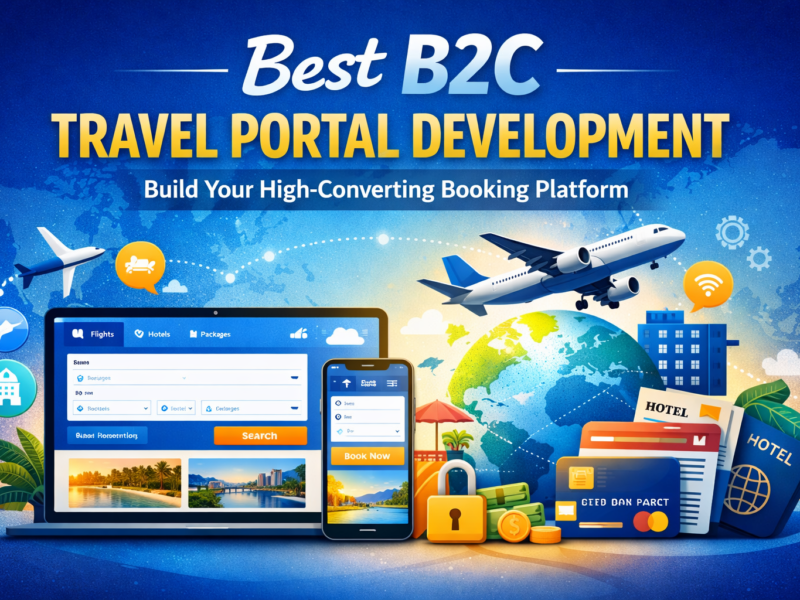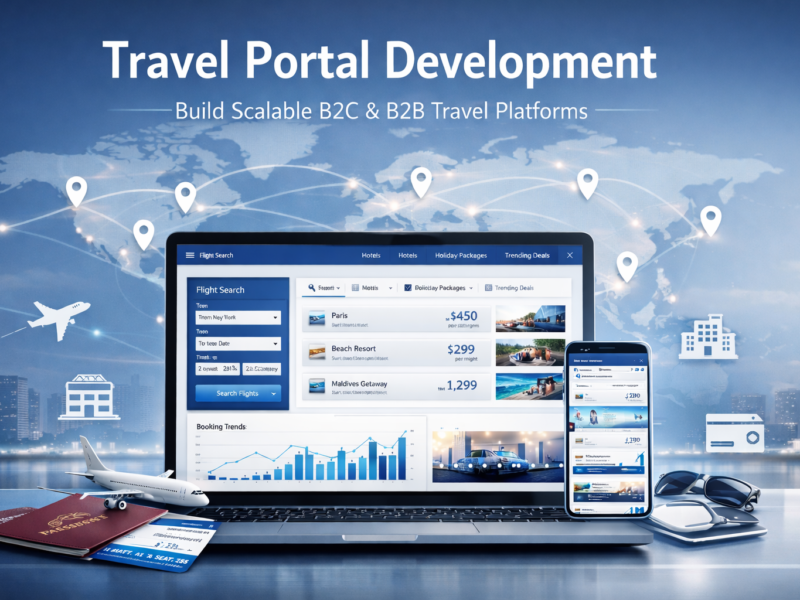Choosing the right travel CRM for Indian agency is the fastest way to reduce manual work, increase conversions, and streamline your operations. This guide explains what features matter, how to compare CRM providers, and why selecting a travel-focused technology partner delivers better long-term results. Moreover, selecting a CRM built for travel helps agencies fix operational delays and improve customer experience.
Why Choosing a Travel CRM for Indian Agency Matters Today
Indian travel agencies handle B2C, B2B, OTA, corporate, and group bookings. Managing all processes manually leads to errors, delayed replies, and lost revenue. A purpose-built travel CRM for Indian agency solves these issues by centralizing lead capture across multiple channels, quotation and follow-up automation, B2B agent management, supplier and booking workflows, and mid-office operations with proven travel mid office solutions. Consequently, a CRM built for travel makes your team faster, reduces dependency on manual work, and improves accuracy.
Core Features You Should Expect
1. Lead & Pipeline Management
Moreover, auto-capture from your website and marketing channels improves response time. Custom pipelines for holidays, flights, hotels, and corporate bookings simplify the sales process. As a result, automated follow-ups and reminders ensure that no enquiry is missed.
2. Integrated Mid-Office
Furthermore, strong travel mid office solutions support booking processing, vouchers, invoices, receipts, supplier confirmations, payment tracking, markups, commissions, and credit limits. Additionally, document storage and operations workflows reduce manual dependency and error rates.
3. B2B Agent Management
For instance, an agent portal with markup rules, wallet and credit control, and real-time booking visibility enables scalable B2B growth.
4. APIs & Supplier Integrations
In addition, API support for GDS, hotel XML providers, airline APIs, and payment gateways allows agencies to operate with full automation.
5. Automated Documentation
Furthermore, quick quotation templates, multi-option itineraries, and auto-generated vouchers and invoices reduce manual processing.
6. Reporting & Dashboards
Most importantly, conversion tracking, agent-wise revenue, product performance, and customer lifetime value help business owners make informed decisions.
How to Evaluate CRM Providers
Industry Experience
For example, choosing a vendor recognized as a best travel portal development company ensures deeper understanding of inventory flows, supplier APIs, travel billing, and mixed B2B/B2C booking models.
Customization Options
Additionally, ask whether they can adjust pipelines, add modules, and customize dashboards based on your business model.
Support Quality
Moreover, confirm implementation support, training sessions, and ticket resolution timelines ahead of onboarding.
90-Day CRM Implementation Blueprint
Preparation (Day 0–30)
In addition, mapping sales and operations, defining automation rules, and finalizing integrations help avoid project delays.
System Setup (Day 30–60)
Consequently, importing leads, configuring pipelines and templates, and integrating APIs prepare your CRM for smooth onboarding.
Training & Launch (Day 60–90)
Finally, after training sales and operations teams and running parallel processing, your travel CRM can go live with monitoring.
Cost Breakdown
Furthermore, setup fees for customization, recurring license costs, and integration charges depend on CRM scope. Besides that, optional add-ons such as advanced reporting may apply based on business scalability.
Why Choose a Travel-Focused Technology Partner
Generic CRMs don’t support travel workflows like vouchers, agent bookings, or supplier confirmations. A CRM backed by a best travel portal development company delivers faster setup, better integrations, travel-ready mid-office, and higher operational efficiency. Therefore, choosing a travel-focused provider protects agencies from expensive re-customization later.
Final Thoughts
A scalable travel CRM for Indian agency improves lead management, operational accuracy, and overall profitability. Moreover, agencies can reduce manual workload through automated mid-office features. Furthermore, integrated supplier APIs help avoid pricing mismatches and booking delays. In addition, automated quotations improve conversion rates and response time. As a result, teams spend less time on repetitive tasks and more time closing sales. Therefore, choosing a scalable CRM is a long-term strategic decision. Finally, CRM dashboards allow business owners to track performance in real time. Additionally, many agencies report productivity improvements after CRM adoption.
For better results, integrate your CRM with your B2B travel portal. Explore reliable B2B travel portal development here:
https://www.softwarexprts.com/b2b-travel-portal
A travel CRM helps automate lead management, quotations, follow-ups, supplier confirmations, and reporting for faster bookings and higher conversions.
Yes. A travel CRM supports B2B agents with markup, credit, and commission control while also handling B2C customer bookings and vouchers.
Agencies should compare customization options, mid-office modules, integrations, support quality, and industry experience before purchasing.
Looking for the smartest CRM and B2B travel portal solutions?
📩 Book a demo now – https://www.softwarexprts.com/contact



